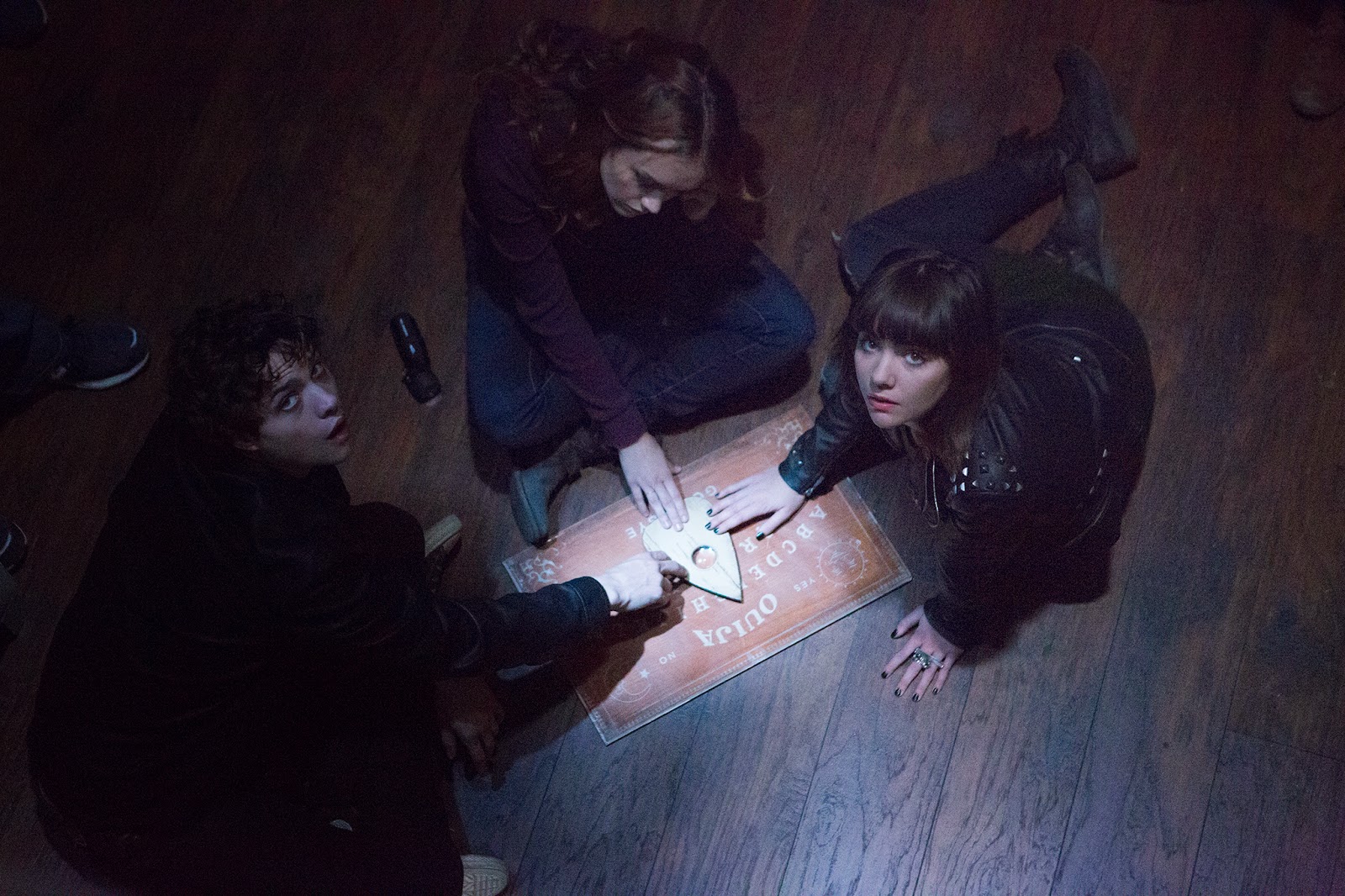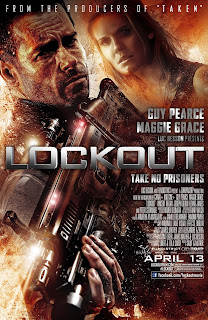Rated
R (Language including some Sexual References, and Brief Drug Use)
Running
Time: 1 Hour & 25 Minutes
Cast-
Brit
Marling-Maggie
Christopher
Denham-Peter Aitken
Nicole
Vicius-Lorna Michaelson
Davenia
McFadden-Carol Briggs
Richard
Wharton-Klaus
Kandice
Stroh-Joanne
Christy
Meyers-Mel
Alvin
Lam-Lam
Constance
Wu-Christine
Matthew
Carey-Lyle
Jacob
Price-PJ
David
Haley-O'Shea
Avery
Kristen Pohl-Abigail Pritchett
Hannah
Johnson-Narrator
Directed
by Zal Batmanglij
 |
| Brit Marling as enigmatic cult leader Maggie in "Sound of My Voice." |
Whenever
I was off from elementary school during the summer, my grandmother would always
send me to an independently-run learning center near where I lived to keep me
from being unproductive at home. There was a kid there approximately my age
whose name I cannot recall this instant but what made him unusual was his
compulsive need to suck his thumb. I do not know why he did it because I never
bothered to ask nor did I care at the time but the other children unsurprisingly
shunned him. The people who ran the center tried to break his habit with little
success but something curious happened one day. This kid brought in his
collection of Spider-Man trading
cards (the 1995 Fleer Ultra Premiere set if you were wondering) and everyone
suddenly became his friend just for that day. Every person has a desire to
belong since it is human nature after all. However, this can easily be exploited
by someone who is both charismatic and manipulative. The most infamous example
would be serial killer Charles Manson, who instructed the members of his
doomsday cult to commit a series of bloody murders in late-1960’s California. People
are never coerced to join cults and often seek them out on their own volition
because they want to belong in a group in which they matter. After making waves
at the 2011 Sundance Film Festival, first-time director Zal Batmanglij and writer
Brit Marling’s “Sound of My Voice” finally arrives in theaters in limited
release. Despite its almost non-existent production budget and vague plot that
leaves more questions than answers, “Sound of My Voice” remains a
thought-provoking experience and stands as a shining example of what can be
accomplished with only an idea and someone committed enough to follow it
through.
A young couple drives to a house at night in an anonymous Los Angeles
neighborhood where they are greeted by a large man. The two are instructed to
cleanse themselves in the shower and change into matching white tunics before
being driven to another location while blind-folded. The couple meets a gray-haired
man with glasses (Richard Wharton) and engages in a complex secret handshake
with him before being allowed into the basement to join the rest of the new
members waiting there. The gray-haired man asks everyone to kneel when a young
woman carrying an oxygen tank enters the sparse room. The woman is named Maggie
(Brit Marling) who reveals that she is a time traveler from the year 2054 where
society has collapsed due to an unnamed civil war and the loss of technology. She
has journeyed forty years back into the past in order to prepare a chosen few
for the coming calamity and lead them to a supposed salvation. Peter Aitken (Christopher
Denham) and Lorna Michaelson (Nicole Vicius), the couple in the beginning of
the film, turn out to be aspiring documentary filmmakers who have infiltrated
Maggie’s burgeoning cult in order to expose her as a fraud. However, they soon
find their relationship strained to the breaking point as Maggie and her cult
forces them to confront harsh truths about themselves and the world they
currently live in.
“Sound of My Voice” does not invite the most positive initial
reception given its grimy, heavily aliased scenes and sparse locations but its
non-existent production budget proves to be an advantage because it gives the
film a grounded realism despite its ridiculous premise. The film does not go
out of its way to develop the characters besides a short narration revealing
that Peter is a substitute teacher at an all-girls school and that he lost his
mother to cancer when he was twelve because she belonged to a cult that didn’t
believe in modern medicine while Lorna is a reformed Hollywood party girl. Both
are motivated to make a documentary on Maggie’s cult because they want to do
something meaningful with their lives. Divided into ten chapters, “Sound of My
Voice” has limited mass appeal because it is a film that provides more
questions than answers. Is Maggie really a time traveler from the future or is
she just a clever con artist who is using ‘her traditionally feminine gift of
emotional insight to bring her followers to their knees’ (Mary Pols, Time Magazine)? There’s this amazing
scene where all the members of her cult are sitting in a circle with an apple
in their hand, a not-so-subtle symbol of the fruit from the Tree of Knowledge
of Good and Evil in the Garden of Eden. Each takes a bite out of the apple but
Maggie explains that they are weak for eating the fruit because it represents
how they are being deceived with illusions of luxury and ‘intellectual
bullsh*t’ by modern society. Things take a grotesque turn when one of the
members vomits up the apple, prompting everyone to do the same except Peter.
Maggie confronts him about his doubts in this intense exchange that brings him
to tears (Lorna later calls it an ‘emotional orgasm’ in a tone that drips with
admiration and jealousy), insisting that Peter is unable to fully give himself
to her due to his personal demons of maternal abandonment and sexual abuse.
Whether this is true or not is never explicitly revealed but it speaks of the
power of indoctrination to the point where you may start believing it yourself.
The film also emphasizes Maggie’s attractiveness, with Lorna accusing Peter of
succumbing to her beauty in a heated exchange where he seriously contemplates
kidnapping a little girl (Avery Kristen Pohl) at his school in order to prove
his loyalty. This leads to a rather abrupt ending where nothing is ultimately
resolved and the audience is left with questions about the connection the
little girl has to Maggie and the motivations of a heavyset government official
(Davenia McFadden) seeking to apprehend the cult leader. The relationship
between Peter and Lorna is also left up in the air but Batmanglij leaves a
number of hints to allow us to draw our own conclusions. “Sound of My Voice” is
ultimately a question of faith, from both the characters and the audience, and
how far you are willing to go in order to achieve a place where you belong.
One
of the reasons the film is so riveting to watch is Brit Marling, who also
serves as co-writer and starred in last summer’s equally intriguing “Another
Earth.” Clad in a white robe, Marling’s hypnotic Maggie is both angelic and
commanding, the kind of cult leader that exudes a soothing motherly quality but
also a hidden manipulative dark side. Marling has already become one of my
favorite actresses despite having only two
films under her belt and I admire her for taking the chance of writing her own
roles even if it means earning less and staying on the fringes of mainstream
Hollywood. Christopher Denham and Nicole Vicius may be unknown to general
audiences but each excel in their respective roles, with Denham’s Peter
struggling with his beliefs under his controlled demeanor while Vicius’s Lorna
remains skeptical of Maggie, but whether it stems from jealousy or not is the
real question. Their relationship, particularly in how Denham and Vicius
interact with each other, is believable and adds to the sense of realism in the
film.
Premiering at the 2011 Sundance Film Festival back in January, “Sound of
My Voice” is finally in limited
release since April 27, 2012 and has received largely positive reviews with 81%
on Rotten Tomatoes. It is currently playing at the Landmark Sunshine Cinema in
New York City. Many critics have praised Marling’s performance and the film’s
themes but some found it frustratingly vague, a sentiment that was shared by
the audience that I saw it with. Many even started to laugh as the film
progressed and I honestly wanted to tell them all to shut up…but I digress.
Despite its limited mass appeal, I still highly recommend the film but it is of
utmost importance that you keep an open mind as it demands you to form your own
interpretations of what is happening. Brit Marling is now two-for-two and I
cannot wait to see “The East” later this year which is also directed by Batmanglij.
You won’t find answers in “Sound of My Voice” but what you will find is an intense and riveting drama. Make sure to see this
film first before the avalanche of big-budget summer blockbusters arrives to
smother us all.
Final
Rating: 4.5 out of 5
“To
see her is to believe her.”


%2B%231.jpg)


















+Poster.jpg)








